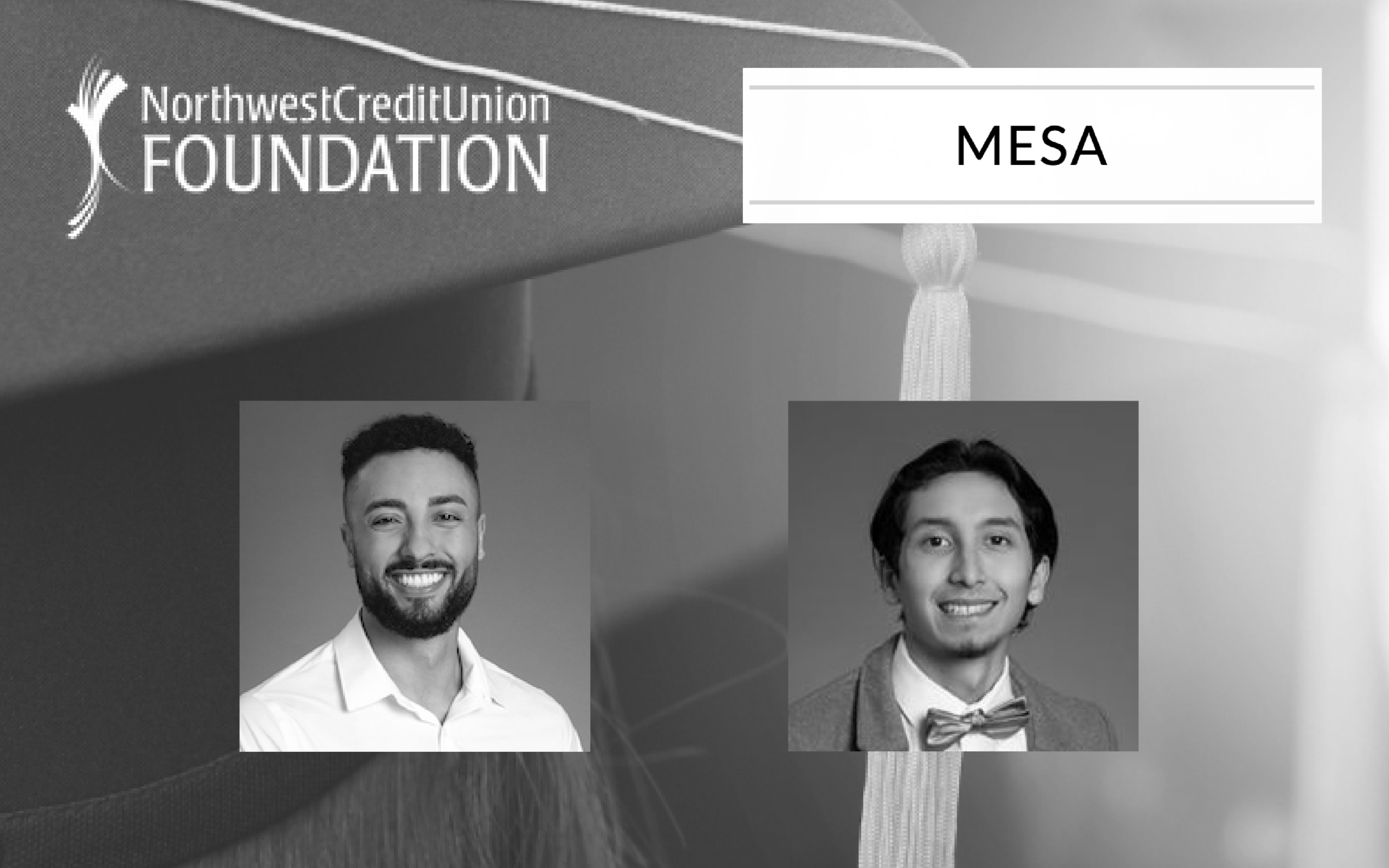Foundation News
Northwest Credit Unions Stepped Up to Help Students with College Expenses
Posted by Ben Shuey on October 26, 2021

The skyrocketing cost of a college education is no secret. The Federal Reserve reports that in the second quarter of 2021, Americans owed a whopping $1.73 trillion in student loans. Student debt is so prevalent it became a major topic during the 2020 elections.
It’s a complex issue that’s especially hard on low-income and first-generation college students who too often graduate with mountains of debt. But, true to form, Northwest credit unions stepped up to be part of the solution.
In 2016, CapEd Credit Union, Clackamas Federal Credit Union, Fibre Federal Credit Union, and Industrial Credit Union joined with the Northwest Credit Union Foundation (NWCUF) to offer the Matched Education Savings Account (MESA) program for students.
Using federal dollars through the Department of Health and Human Services’ Individual Development Accounts (IDAs), MESA helped to bridge the gap in education expenses for low- to moderate-income college students in Idaho, Oregon, and Washington.
Unfortunately, the federal funding that made the program possible is ending, which means the MESA program must end as well. But that doesn’t diminish the program’s success. Over the past five years, Northwest credit unions supported a total of 69 college students, helping them to save a total of $31,784. With matched funds included, more than $125,000 was invested in those students’ higher education.
Through the program, participants made regular contributions to their MESA account at their credit union and received a 3-to-1 match of up to $500—unlocking up to $1,500 in matched funds to cover education expenses, including books and tuition.
Alejandro Hernandez is in his third year at Boise State University and participated in the program through CapEd Credit Union based in Meridian, Idaho. He saved $500 and was able to maximize the match amount.
“That year, all classes were moved online because of COVID, so the money allowed me to buy a new laptop, which helped with the new virtual class format,” Hernandez said.
Sevio Stanton, another Boise State student, also participated.
“I worked to save that $500, and I ended up getting $2,000 applied to my tuition at Boise State,” said Stanton, who is working on a triple major in biology, chemistry, and physics, with a minor in applied mathematics. He will complete his undergraduate degree in two years and is planning to earn a PhD in physics. “It certainly has helped me not to have student loans.”
As required of MESA participants, Hernandez and Stanton took part in the program’s financial education offerings.
“I learned about auto and personal loans, and credit card use,” said Hernandez, who is studying accounting and thinking about a double major to include finance. He hopes to sit for the CPA exam in the future. Hernandez completed an accounting internship during the past summer and is now working part-time for the company. “I also learned about credit scores and budgeting, like how to identify and manage your income and expenses. Things that you weren’t taught in high school.”
These are the kinds of stories Todd Christensen, SVP of Advancement & Member Experience at CapEd, loves to hear. He’s proud that his credit union partnered with the NWCUF to make the MESA program available to their members as they seek to achieve their higher education goals.
“The MESA program helped students gain greater financial well-being skills as they save for their education,” said Christensen. “The reward was not only additional information but also financial support. The 3-to-1 match was a 300 percent return on their savings, a great financial return, as well as an important way to recognize students’ work to earn the funds to support their continuing education.”
Sharee Adkins, executive director of the NWCUF, echoed that sentiment, “By partnering with credit unions to offer products that support members in achieving their financial goals in areas like education, we see the power of pairing tools like IDAs with financial education to maximize the impact on members’ overall financial well-being.”
Adkins said the MESA program has been a great example of the Foundation’s efforts to work with Northwest credit unions to expand and accelerate the impact they have on the lives of their members and the communities they serve.
Editor’s Note: Interested in learning more about how your credit union can partner with the GoWest Foundation? Visit GoWest Foundation online and contact the team.
Posted in Asset Building, MESA.
